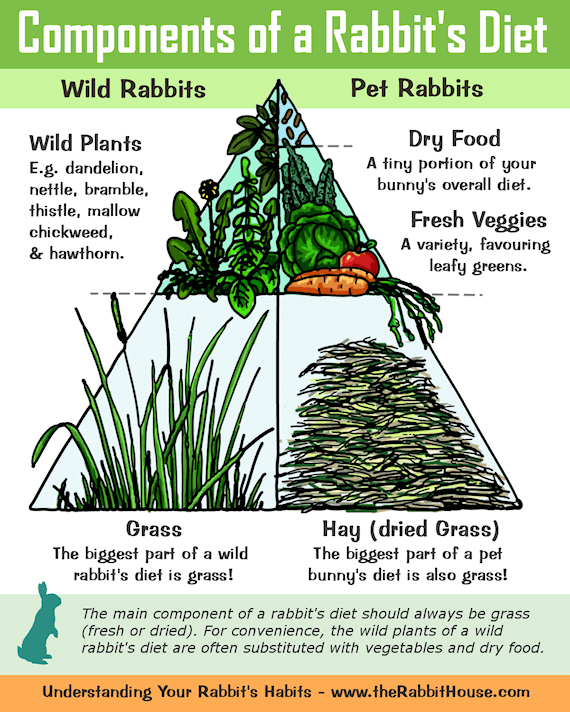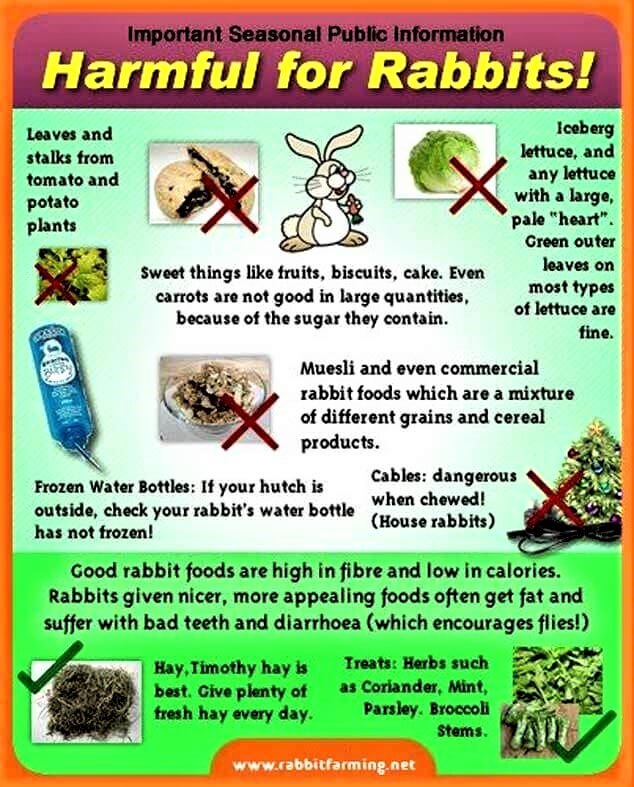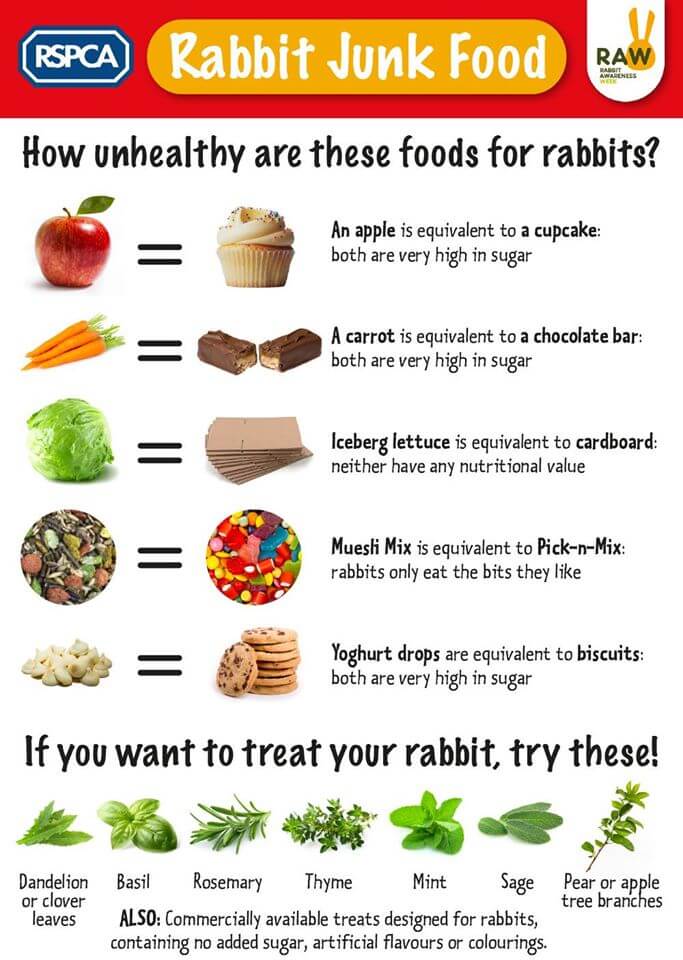In this blog entry I am going to look at the importance of of nutrition in your rabbits diet. Many pet stores and breeders offer a free or reduced bag of muesli style food when purchasing a rabbit. In previous blogs I have spoke about the importance of proper housing and rabbits living in pairs; two things which pet stores don’t promote, and unfortunately the same can be said about nutrition.
The RWAF sent their veterinary adviser Richard Saunders to the British Small Animal Veterinary Association (BSAVA) annual congress back in 2013, and their findings revealed that rabbits only fed muesli (as opposed to the RWAF recommended 5% pellets, 10% leafy greens and 85% hay) became rapidly obese and developed dental disease. However, this isn’t something that is openly advertised by pet shops still stocking cheap muesli food. More recent studies by the BSAVA show that rabbits fed muesli-based diets (even if they did have the appropriate amount of hay and leafy greens) spent less time demonstrating positive/ active behaviours and demonstrated more destructive behaviour by chewing inappropriate materials. This is not only an inconvenience for the owner but potentially dangerous for the rabbit ingesting these materials that could lead to gut stasis, a life-threatening condition in rabbits. (This will be looked at more in an upcoming blog about illnesses in rabbits.)
Hay is not only useful in providing fibre to help gut motility, but also stimulates the rabbits’ natural urge to chew and helps keep their teeth worn down by constantly using them; PETA states that rabbits teeth grow constantly throughout their lifetime to enable them to be able to constantly eat their natural diet in the wild. Furthermore, the BSAVA states that rabbits fed muesli-based diets had less uneaten caecotrophs; soft pellets full of nutrients and vitamins not absorbed after the small intestine in the rabbit. Rabbits usually eat these to ensure they are getting all their nutrients and by not eating them means your rabbit is at risk of being malnourished.
Eating a muesli-based diet as opposed to a pellet one can also lead to selective feeding. Burgess pet care state that rabbits fed muesli-based diets often eat the brightly coloured pieces with high starch element and leave the ‘boring’ brown high fibre pieces which are essential for gut motility. They also state that hay and water intake is lower when fed muesli which again leads to less fibre in the diet, overgrown teeth and higher risk of urinary tract infections.
Hopefully after reading this you will agree that muesli style food isn’t appropriate or healthy for your rabbit and will either not feed your new rabbit the included muesli, or if you are already feeding your rabbit this will want to change onto pellets. Any changes made to your rabbits’ diet should be done over a 14-28-day period as rabbits GI system is very sensitive to changes which can also lead to gut stasis. As previously stated, your rabbits’ diet should be made up of 5% pellets, 10% leafy greens and vegetables and 85% hay (with timothy hay being the best in our opinion.) For further advice on changing your rabbits diet you can either seek advice from a RWAF approved veterinarian or visit the PETA or RSPCA website. Watch out for next blog entry on choosing the proper bedding and litter products for your rabbit.



© 2023 Pets Playstore. All Rights Reserved.